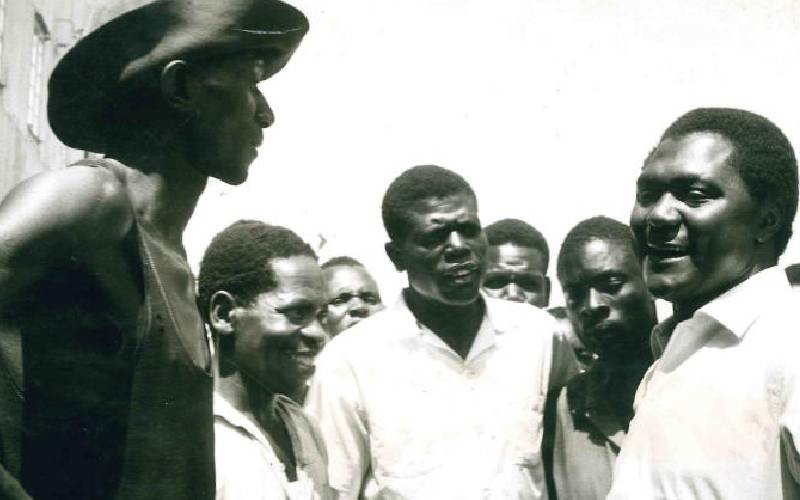×
The Standard e-Paper
Home To Bold Columnists

Tom Mboya addressing dock workers during his visit to Kipevu Berths in Mombasa July 1962. [File, Standard]
Before immersing himself in the liberation struggle, Joseph Thomas Mboya worked as a sanitary inspector at the Nairobi City Council. His roles included working in the food section of the Health Department in testing milk samples.